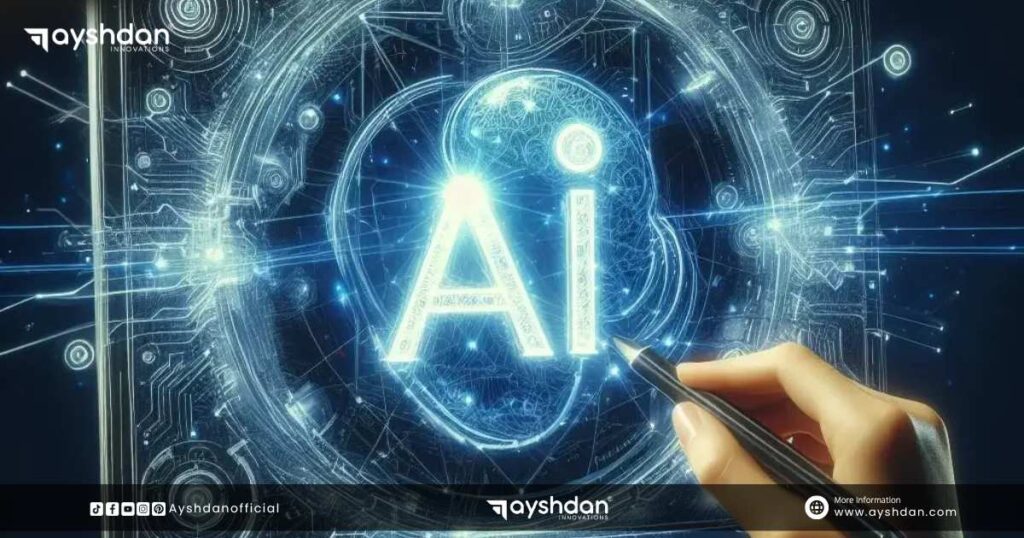Artificial Intelligence (AI) is no longer just a buzzword in the business world; it has become a powerful tool reshaping industries across the globe. From startups to multinational corporations, companies are leveraging AI to gain efficiency, improve customer experience, and drive growth. The impact of AI on business continues to expand in both depth and breadth.
AI isn’t just about replacing human jobs—it’s about redefining how businesses operate, compete, and serve their customers.
What is AI in Business?
AI in business refers to the integration of artificial intelligence technologies into business operations and strategies. This includes machine learning, natural language processing, robotics, computer vision, and other AI-driven capabilities.
Key Areas Where AI is Being Applied:
- Customer service automation (chatbots, virtual assistants)
- Data analytics and insights for decision-making
- Marketing personalization
- Inventory and supply chain optimization
- HR and recruitment automation
- Predictive maintenance and quality control in manufacturing
Benefits of AI for Businesses
Before diving into how businesses use AI, let’s look at the major benefits:
Businesses that use AI effectively enjoy several advantages:
- Increased efficiency: Automate repetitive tasks to save time.
- Cost reduction: AI reduces operational costs in the long run.
- Better decision-making: Data-driven insights improve accuracy.
- Improved customer experiences: Personalized recommendations and 24/7 support.
- Innovation: Enables new business models and services.
Popular AI Tools Used in Businesses
AI tools are accessible even for small businesses today. Here are some widely used tools:
- ChatGPT, Google Bard – for customer interaction, content creation
- HubSpot, Salesforce Einstein – AI-driven CRM tools
- Tableau, Power BI – AI-powered business intelligence platforms
- Zoho Recruit, HireVue – for recruitment and HR management
- Shopify AI, Amazon Personalize – for e-commerce automation
How Businesses Are Using AI
AI is not confined to tech companies. From healthcare to retail, businesses across sectors are adopting it. Here’s a breakdown:

1. AI in Marketing
AI helps marketers understand customer behavior and create hyper-targeted campaigns.
Applications:
- Audience segmentation
- Real-time personalization
- Email automation
- AI content creation
2. AI in Finance
AI is streamlining financial processes and improving fraud detection.
Applications:
- Risk assessment
- Algorithmic trading
- Expense tracking
- Automated invoicing
3. AI in E-commerce
Online stores are using AI for smart recommendations and inventory management.
Applications:
- Chatbots for customer queries
- Visual search
- Demand forecasting
- Dynamic pricing
4. AI in Healthcare
AI assists in diagnostics, treatment plans, and operational efficiency.
Applications:
- AI-powered diagnostics
- Patient data management
- Predictive healthcare analytics
- Virtual health assistants
5. AI in Manufacturing
AI drives automation and predictive maintenance on the production floor.
Applications:
- Robotics
- Smart sensors
- Quality control
- Inventory forecasting
Comparison Table: Traditional Business vs AI-Driven Business
| Feature | Traditional Business | AI-Driven Business |
|---|---|---|
| Customer Support | Human agents only | 24/7 AI chatbots + humans |
| Decision Making | Manual analysis | AI-powered analytics |
| Marketing | Mass communication | Personalized, data-driven |
| Operations | Labor-intensive | Automated workflows |
| Innovation Speed | Slow | Rapid via AI tools |
Challenges of Implementing AI in Business
While AI offers numerous benefits, adoption comes with its own set of challenges:
Key Challenges:
- High initial costs for AI development and deployment
- Data privacy and security concerns
- Skill gap among employees
- Integration with legacy systems
- Ethical considerations of using AI in decision-making

Future Trends to Watch
AI’s role in business will only grow more prominent. Some expected trends include:
- Generative AI for product development
- AI in sustainability and green tech
- Voice commerce and AI-driven shopping
- AI-based employee performance evaluation
- Decentralized AI using blockchain
Conclusion
AI is fundamentally reshaping the business world. From streamlining operations to delivering personalized experiences, its applications are vast and transformative. For businesses to remain competitive, embracing AI is not an option—it’s a necessity.
Frequently Asked Questions (FAQs)
What industries benefit most from AI?
Industries like healthcare, finance, e-commerce, and manufacturing are seeing the greatest impact from AI.
Is AI only for large businesses?
No. Many AI tools are accessible to startups and small businesses, helping them compete with larger enterprises.
Can AI replace human jobs?
While AI automates certain tasks, it also creates new roles focused on managing and improving AI systems.
How can I start using AI in my business?
Start with simple AI tools like chatbots or AI-powered analytics, then scale as needed.
Is AI secure?
AI systems can be secure if proper data privacy and cybersecurity protocols are followed.
What is the cost of implementing AI?
Costs vary depending on scale, but cloud-based AI services offer affordable entry points for most businesses.














